Lecture 21: Linearizability II
COSC 273: Parallel and Distributed Computing
Spring 2023
Announcements
- Quiz this Friday
- sequential consistency
- linearizability
- recall stack operations
-
push(x),pop()
-
Last Time: Linearizability
An execution of a shared object is linearizable if:
- exists a linearization point in each method call such that execution is consistent with sequential execution where method calls occur in order of corresponding linearization points
An implementation of an object is linearizable if every execution is linearizable.

Linearizable TwoCounter
public class TwoCounter {
int[] counts = new int[2];
public void increment (int amt) {
int i = ThreadID.get(); // thread IDs are 0 and 1
int count = counts[i];
counts[i] = count + amt;
}
public int read () {
int count = counts[0];
count = count + counts[1];
return count;
}}
ThreeCounter Example
public class ThreeCounter {
int[] counts = new int[3];
public void increment (int amt) {
int i = ThreadID.get(); // thread IDs are 0, 1, and 2
int count = counts[i];
counts[i] = count + amt;
}
}
A read Method
public int read () {
int count = counts[0];
count = count + counts[1];
count = count + counts[2];
return count;
}
Is ThreeCounter Linearizable?
Writing Between the Lines
public int read () {
int count = counts[0];
count = count + counts[1];
count = count + counts[2];
return count;
}
Sequentially Consistency
Questions.
- Is the previous execution sequentially consistent?
- Is
ThreeCountersequentially consistent?
A Queue Again
Question. How to implement a (non-concurrent) queue with a linked list?
A Concurrent Queue
- Use linked list implementation of queue
- Store:
-
Node headsentinal-
deqreturnshead.nextvalue (if any), updateshead
-
-
Node tail-
enqupdatestail.next, updatestail
-
-
- Locks:
-
enqLocklocksenqoperation -
deqLocklocksdeqoperation - individual
Nodes are not locked
-
Unbounded Queue in Pictures
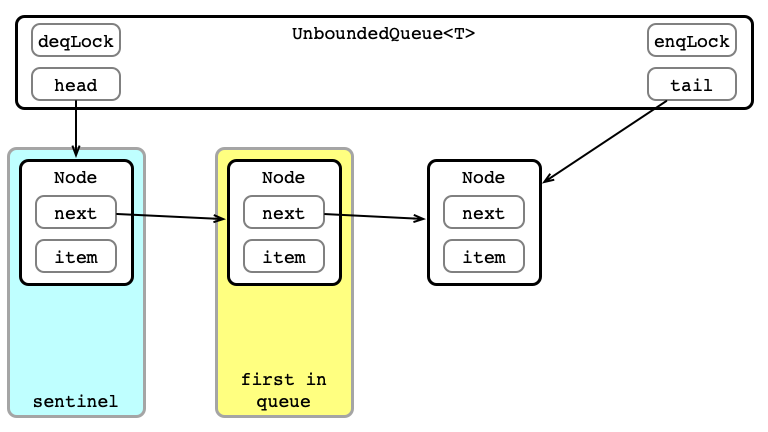
Dequeue 1: Aquire deqLock
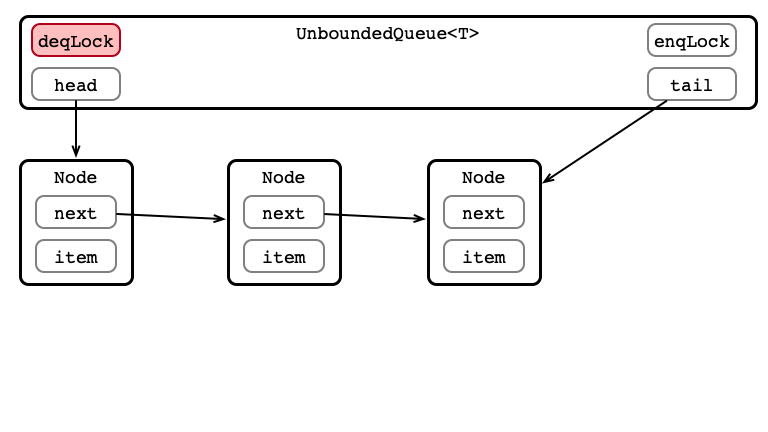
Dequeue 2: Get Element (or Exception)
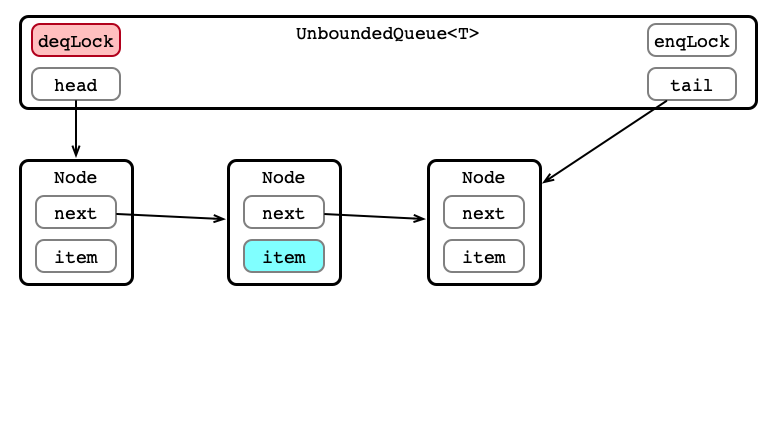
Dequeue 3: Update head
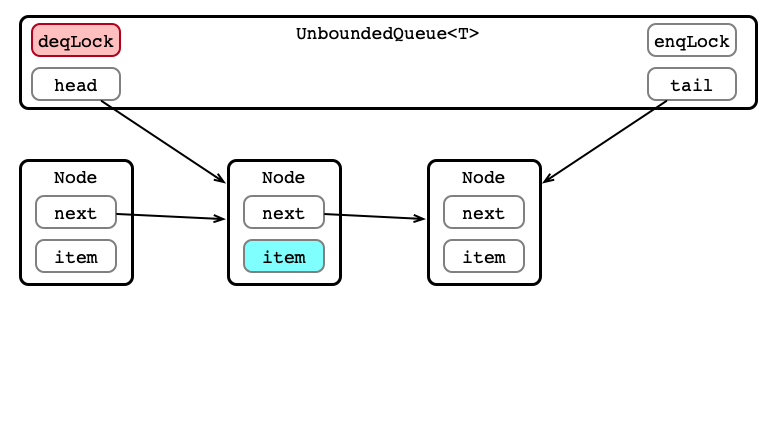
Dequeue 4: Release Lock
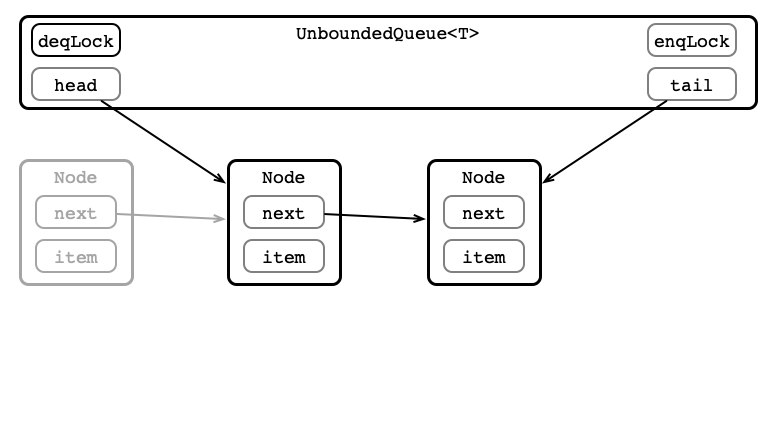
Enqueue 1: Make Node
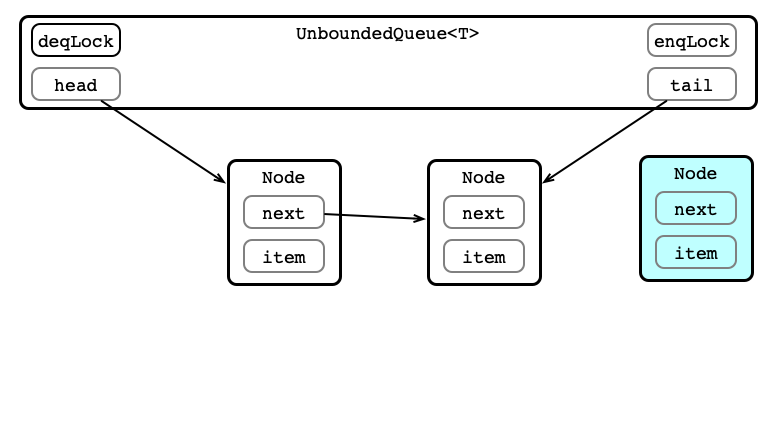
Enqueue 2: Acquire enqLock
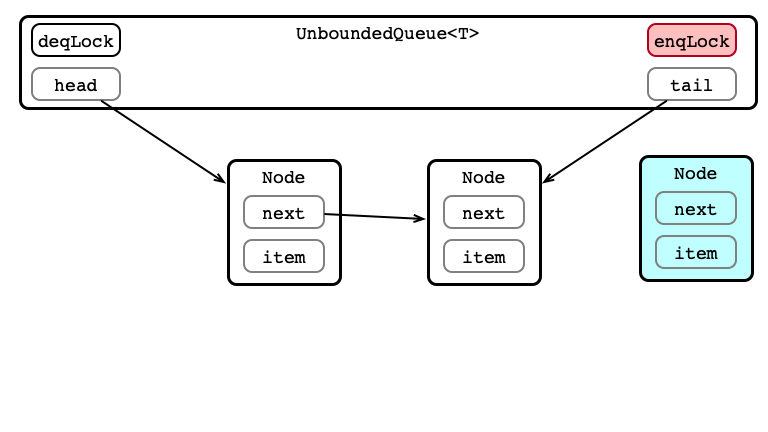
Enqueue 3: Update tail.next
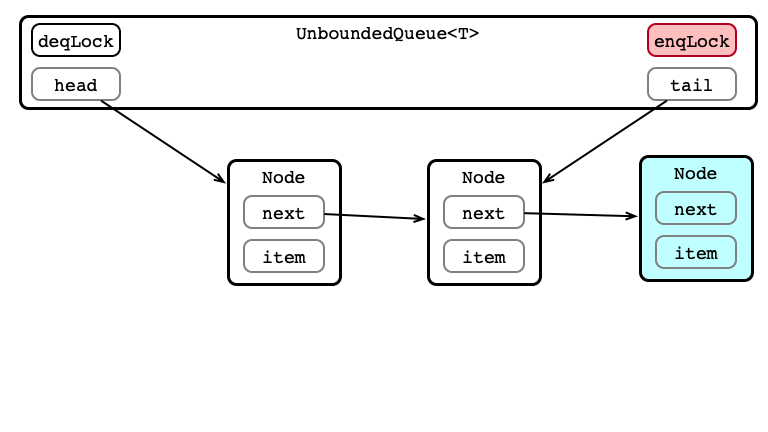
Enqueue 4: Update tail
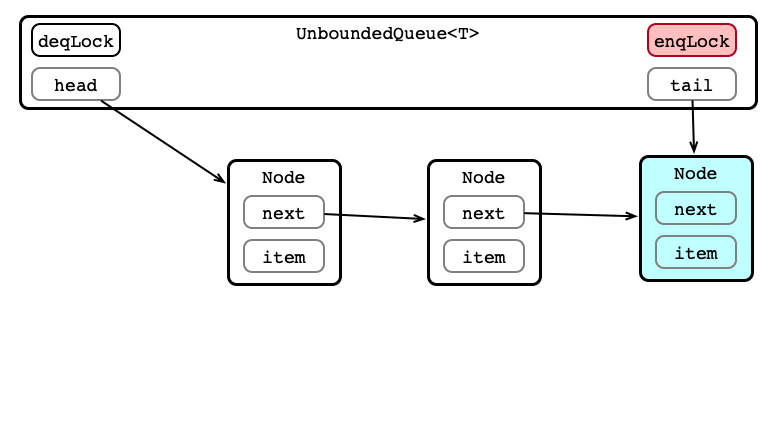
Enqueue 5: Release Lock
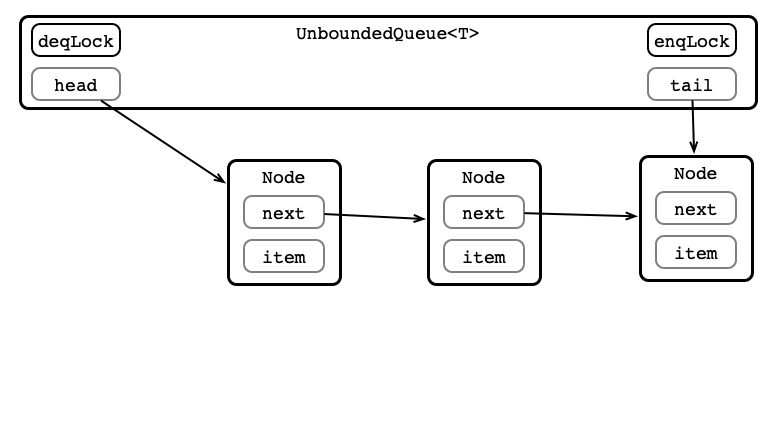
Question
Why do we need the sentinel node?
UnboundedQueue in Code
public class UnboundedQueue<T> implements SimpleQueue<T> {
final ReentrantLock enqLock;
final ReentrantLock deqLock;
volatile Node head;
volatile Node tail;
public UnboundedQueue() {
head = new Node(null); tail = head;
enqLock = new ReentrantLock();
deqLock = new ReentrantLock(); }
...
}
Node Class
class Node {
final T value;
volatile Node next;
public Node (T value) {
this.value = value;
}
}
enq Method
public void enq (T value) {
enqLock.lock();
try {
Node nd = new Node(value);
tail.next = nd;
tail = nd;
} finally {
enqLock.unlock();
}
}
deq Method
public T deq() throws EmptyException {
T value;
deqLock.lock();
try {
if (head.next == null){throw new EmptyException();}
value = head.next.value;
head = head.next;
return value;
} finally {
deqLock.unlock();
}
}
Is UnboundedQueue Linearizable?
- What concurrent operations do we need to consider?
- What internal states do we need to consider?
- What are the linearization points (if any)?
Pertinent Lines
public void enq (T value) {
Node nd = new Node(value);
tail.next = nd;
tail = nd;
}
public T deq() throws EmptyException {
if (head.next == null){throw new EmptyException();}
value = head.next.value;
head = head.next;
return value;
}
Next Time
Concurrent queues without locks?!?!